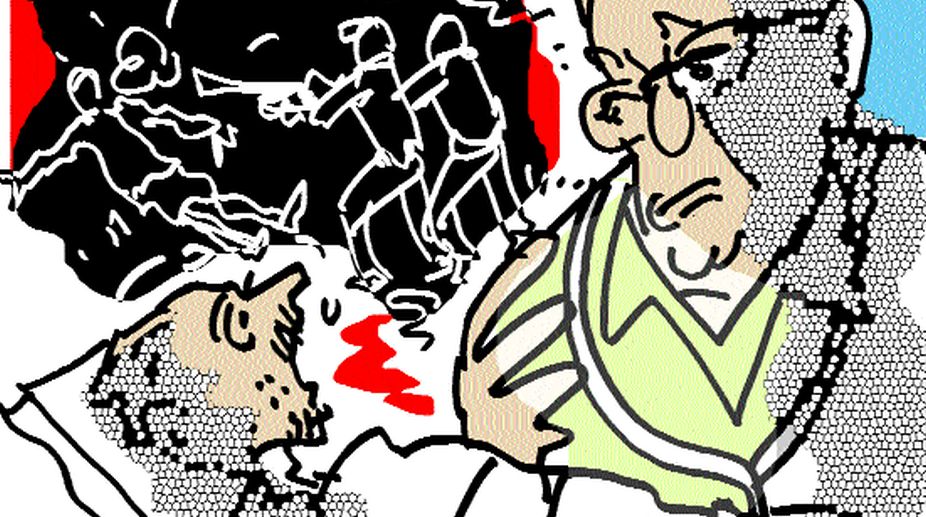Any dying man would be a doctor’s special concern. But this one was very special for my uncle. He sat close to the gasping man and whispered, “I am the one you sent for.”
He had just taken out the two bullets the police had used to take the man down and knew the damage was extensive and irreparable. All he could do now was to help reduce his pain and find out why he had specifically asked for him.
He knew the man as Ram, but almost certainly that wasn’t his real name. Three years ago some farmers had found Ram at the edge of their field, dying of bullet wounds, and had carried him to uncle’s clinic in the country. He was 68, a country doctor who had become a legend in his lifetime and drew patients from over twenty villages in eastern India. A large man, with silver hair and a walrus moustache, he was the calmest of listeners and gentlest of healers. He treated many of his poor patients free and I marveled to see his eyes mist when women or children spoke of their pain.
Ram had said that he had been robbed and then shot by hoodlums. He teetered on the verge of death for weeks before he recovered. Because he now walked with a limp and could not return to his work as a day labourer, my uncle hired him as a domestic. The children liked him, and he became a part of the family.
One day he disappeared, about as suddenly as he had originally appeared. My uncle missed him, but when others commented on Ram’s ingratitude in leaving without a word, he said, “We don’t know why he left so suddenly. So let’s not guess. We shouldn’t judge until we know.”
A shattering blow came in less than a month. Ram, it turned out, was no day labourer. He led a notorious gang of outlaws and had been shot, not by hoodlums, but by the police in a violent encounter. Worse, when he had left, he had stolen my uncle’s hunting rifle, using his position as a trusted domestic.
Since rejoining his gang, Ram had shot and killed two policemen with the gun. Now my uncle was implicated, because the police presumed that he had allowed the misuse of his gun or at least been negligent in its safekeeping.
After grilling him for three days in the district court, the authorities let my uncle go but cancelled his gun license. The public humiliation was his worst punishment.
Now, after more than two years, a police car had fetched him to the bedside of a dying man who did not want any doctor but my uncle.
Ram said, “Doctor, you saved my life once. In return, I stole from you.” He paused, and added, “Please forgive me if you can.”
Those were his last words.
The writer is a Washington-based international development advisor and had worked with the World Bank. He can be reached at mnandy@gmail.com











